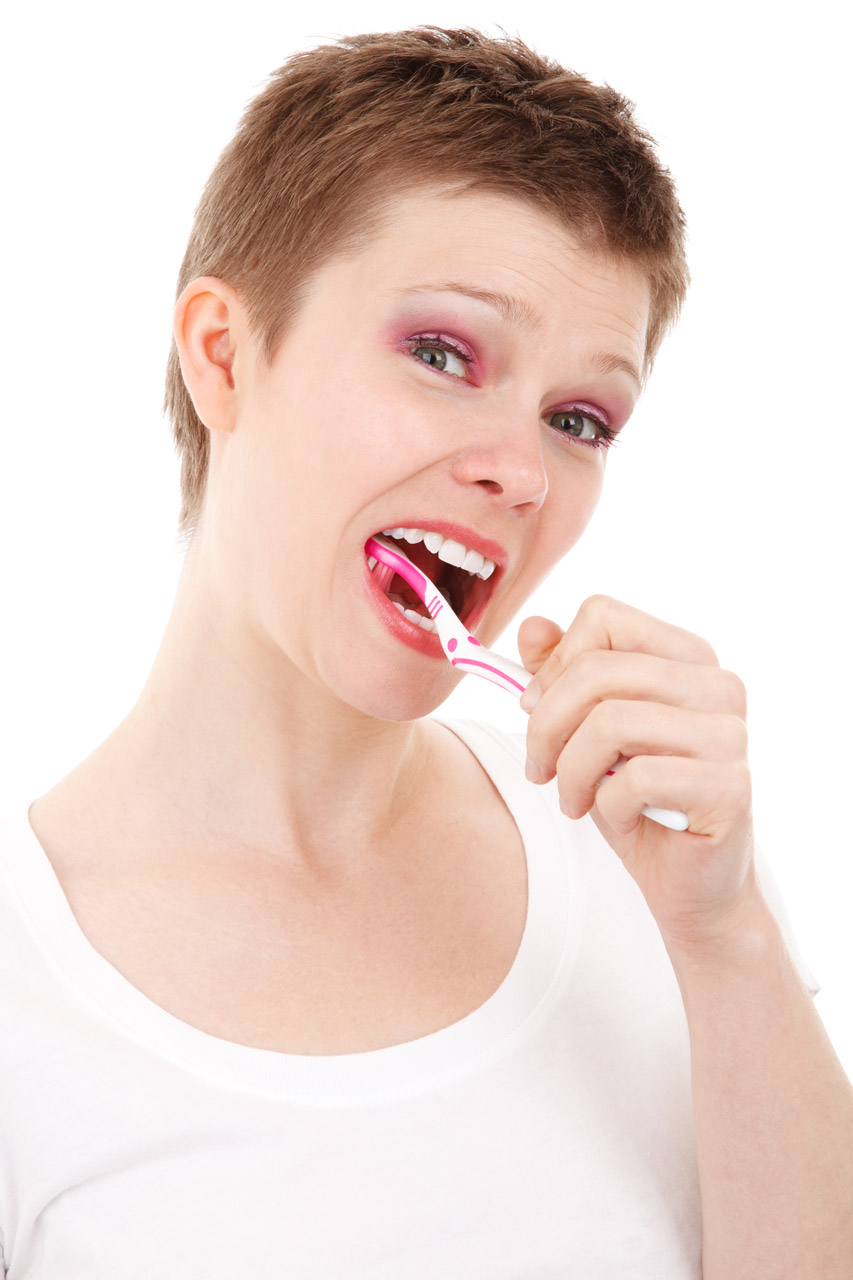[caption id="" align="aligncenter" width="373"] publicdomainpictures.net[/caption]
publicdomainpictures.net[/caption]
If you've had headaches, jaw pain, neck pain, and fatigue lately, you may want to get checked out by your dentist. According to Delta Dental, about 15% of U.S. adults suffer from a TMJ/TMD issue. Dr. Alvin Danenberg says that he believes that that number is significantly higher due to his years of experience. And if you aren't sure what's causing your pain, Dr. Danenberg has some ideas:
8 possible causes of your patient's jaw pain
As a periodontist, I frequently treat temporomandibular joint (TMJ) pain or temporomandibular disorders (TMDs). Many of the causes of this type of jaw pain also can damage the jawbone around the roots of teeth.
In my experience, between 60% and 70% of adults have experienced some symptoms of TMD. Their most frequent complaint is pain either in the jaw joint or the jaw muscles. Patients often experience discomfort when opening their jaw, along with popping and cracking sounds in the jaw joints when opening and closing. Some patients also experience buzzing or ringing sounds in their ears.
TMDs are multifactorial, and their sources may be difficult to identify. I initially focus on the following eight related causes for TMDs:
- Trauma (such as a car accident) involving the jaw joint, which could damage the joint structures
- Clenching and grinding the teeth
- Teeth that have been improperly restored or are out of alignment
- Poor nutrition and unhealthy digestion, which could cause chronic inflammation and affect all joints in the body, such as in patients with rheumatoid arthritis
- Emotional stress, such as illustrated by a study by Lei and colleagues in Cranio (April 28, 2016).
- Lack of sleep
- Excessive estrogen, although studies vary
- Infection in the joint
Many factors affect jaw pain. The more obvious causes should be explored first. If grinding habits or bite problems exist, these must be corrected. Stress reduction, restorative sleep, and good nutrition to provide proper hormone balance must be implemented to reduce TMD symptoms. If symptoms persist, other treatment options should be considered to make the patient comfortable. Read full article here . . .
Although this article points out many possible explanations for your jaw pain--some of which you may have even suspected, it does forget one: mouth breathing. That may surprise you, since such a habit seems rather innocuous.
However, chronic mouth breathing can start all the way back to when you were a child. obviously the correct way to breathe is through your nose, but if you have enlarged tonsils, allergies, or other issues that make it difficult to breathe through your nose, then mouth breathing will naturally occur.
For mouth breathers, the the lower jaw comes down, as well as the tongue. During normal breathing, the tongue rests on the soft palate and balances the pressure of the cheek muscles. But when the tongue is always lowered, there is nothing to counterbalance the cheeks, which can press in and make the maxilla narrower.
Since the jaws change, this often causes a chain reaction where the lower jaw is pushed back and TMJ is the result. You can see a clear explanation of this phenomenon in the following video:
https://www.youtube.com/watch?v=982c7x7-Slk
So if you think that mouth breathing is the cause of your issues, you may be wondering what you can do to fix it. First, you will want to get set up with either day-time appliances (for severe cases) or a night-time appliance--similar to a mouth guard, that will relieve some of the pressure.
Just being aware of your mouth breathing may help, since you will be able to self-correct and breathe through your nose. If this is too difficult, you may need surgery (to remove adenoids or tonsils), or you may need to visit a doctor to fix a deviated septum.
Besides reducing your symptoms, are there any oral appliances that could re-align the jaw? Dr. Donald Tanenbaum says the jury is still out:
Can Mouth Guards Cure TMJ?
How about oral appliances to re-align the jaw? This concept of jaw re-alignment to address a TMJ problem remains controversial. To date there is no science to support the concept that a poor bite or mal-aligned jaw is responsible for the emergence of TMJ symptoms. At most a bad bite or mal-aligned jaw may be a risk factor but with no more weight than other risk factors such as; female gender, gum chewing, clenching, night grinding, or stress. As long as there remain millions of people with bad bites and asymmetric jaws without symptoms this concept has to be viewed with skepticism. In addition, if an appliance were to be made to re-align the jaw, it would require the patient to bite or rest on it when in the mouth to hold the jaw in the ‘better’ position. This action of course would violate the principle that the jaws should hang at rest during the day. Clearly this option must be chosen with great care. Read more here . . .
However, if your upper jaw has been narrowed over time due to this issue, you may be wanted to fix it anyway with orthodontic treatment. An expander can be used to widen the jaw, and braces can be used to correct overbites that are commonly seen in mouth breathers.
Even though realigning the jaw to correct the problem is looked at with some skepticism, it can help you in your efforts to correct mouth breathing, fix both cosmetic and functional issues, and possibly reduce TMJ due to disc slipping.
The following post Shut Your Mouth: The Negative Chain Reaction of Chronic Mouth Breathing is republished from: Laguna Vista Dental Dentistry Blog
Laguna Vista Dental
7915 Laguna Blvd #150
Elk Grove, CA 95758
(916) 684-3105
lagunavistadental@gmail.com
Google My Business Listing
Google Map
Directions to our office
Yelp Page

No comments:
Post a Comment